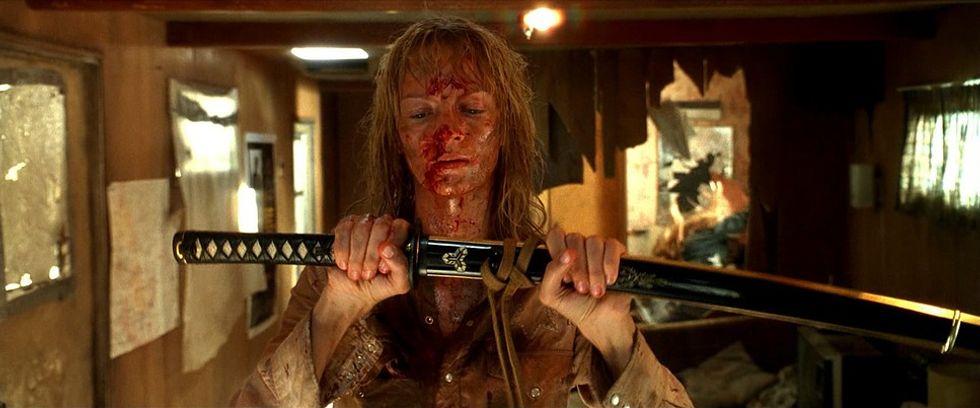
I’ve been stressed all week. I just finished a spec I’m super proud of, and it has no title. I’ve always prided myself on having a script title that’s evocative of what you’re about to read.
Writing titles has become sort of a nightmare for me. I basically have to come up with the title before I write, otherwise, the stress will take over, and I won’t be able to finish,
I keep a running document of titles and I break it out every time I’m going to try a new spec. And I add to it every time I have an idea spark.
Today, I want to go over titles with you and talk about how to come up with them and how to pick the right ones for your work.
Let’s get started.
Your Screenplay Title Matters

If anyone ever told you titles don’t matter, they were wrong, bucko. Titles are the first thing your reps or friends will tell people about a script. And it will be on every single poster and billboard when it’s made.
Your screenplay’s title is its calling card. It’s the first thing a reader sees, giving a hint about the world they’re about to enter.
A great title can intrigue an agent, producer, or audience member, sparking an irresistible urge to dive in. A weak one? Well, that can lead your script to an early rejection.
Here’s the good news: titling your screenplay doesn’t have to be as daunting as the blank page itself. Let’s explore ways to find a title that will do your hard work justice!
Coming Up With Screenplay Titles

There are a plethora of ways to come up with script titles. Everyone should get comfortable just jotting down ideas as they come. Take those miracles.
But when you have to brainstorm, there are a few different ways to do it.
I try to break that down into the different categories of what I’m looking for when I come up with an idea.
The Basics
- Short and Sweet: The ideal title is snappy. Aim for something easily remembered and spoken aloud.
- Thematic: Your title should relate to your core storyline, its central conflict, or the prevailing feeling of your script.
- Evocative: Great titles stir our curiosity. Evoke a mood, plant an image, or ask a question without giving away too much.
Genre Considerations
The tone of your title helps set expectations for the reader. Consider these approaches:
- Horror: Think sharp, visceral imagery or unsettling questions.
- Comedy: Embrace the absurd, the playful, or the outright ridiculous.
- Thriller: Titles here should be taut and suspenseful.
- Drama: Consider titles with a touch of poetry or those that hint at a character’s journey.
- Action/Adventure: Lean on excitement and hint at the scale of the story.
Tips For Script Titles

Sometimes, none of that works, so, if you’re stuck, here are a few techniques to kick off your brainstorming session:
- List It Out: Write down key themes, locations, character names, and iconic objects in your story. Play with combining them in unusual ways.
- Mood Boards: Create a collage of images representing the feelings you wish to evoke. What titles could spring from that visual inspiration?
- Reference and Remix: Study titles of successful films in your genre. Can you play with similar structures or borrow a word that fits your work?
- The ‘What If’ Game: Ask outlandish “What if…” questions about your central character or premise. An absurdly specific answer could be your title gold!
- Research is Key: Check if your title is already in use, or too similar to another popular one. Uniqueness helps!
- Read it Aloud: Does it roll off the tongue? Is it easy to recall?
- Get Feedback: Ask trusted readers for honest opinions on your title options.
Your amazing screenplay deserves a title that matches its potential. While there’s no single formula, don’t rush—the right title might reveal itself just when you think it never will.
Have fun in the process, it’s the first step to sharing your story with the world!
Let me know what you think in the comments.
Author: Jason Hellerman
This article comes from No Film School and can be read on the original site.
